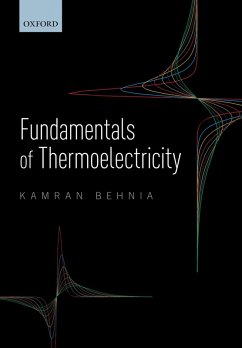What kind of information on the electrons' organisation in solids is yielded by measuring their thermoelectric response? Fundamentals of Thermoelectricity gives an account of our current understanding of thermoelectric phenomena in solids by presenting basic theoretical concepts and numerous experimental results. Many readers will be surprised to learn that even in the case of simple metals (considered to be domesticated long ago by the quantum theory of solids) our understanding lags far behind known experimental facts. The two theories of phonon drag, the positive Seebeck coefficient of noble metals, and the three-orders-of-magnitude gap between theory and experiment regarding the thermoelectric response of Bogoliubov quasi-particles of a superconductor are among the forgotten puzzles discussed in this book. Among other novelties, it contains an original discussion of the role of the de Broglie thermal wave-length in setting the magnitude of the thermoelectric response in Fermi liquids.
Dieser Download kann aus rechtlichen Gründen nur mit Rechnungsadresse in A, B, BG, CY, CZ, D, DK, EW, E, FIN, F, GR, HR, H, IRL, I, LT, L, LR, M, NL, PL, P, R, S, SLO, SK ausgeliefert werden.


